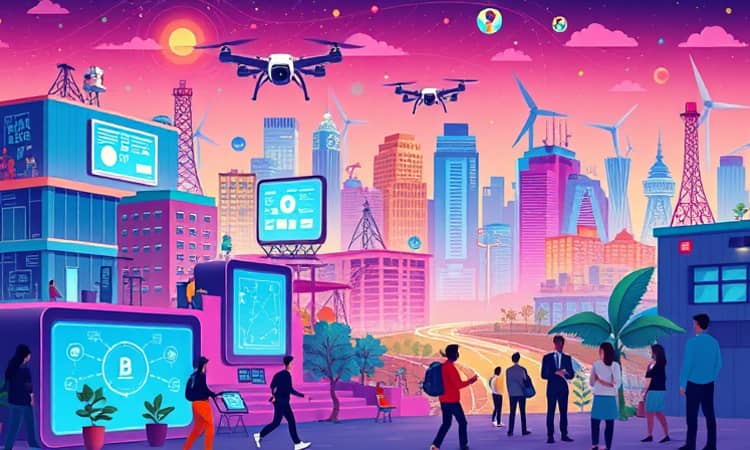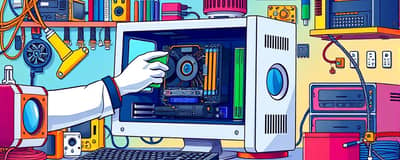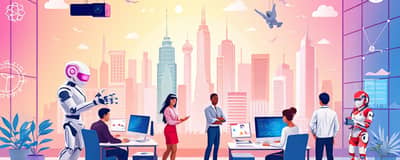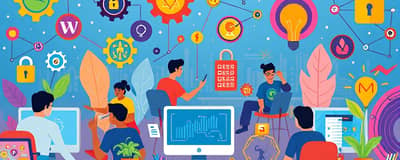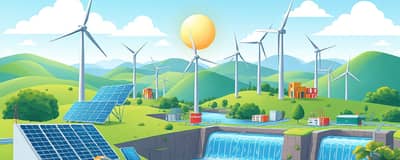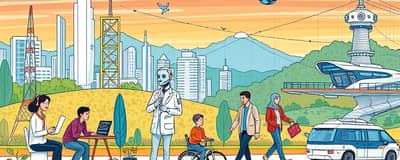As technology continues to evolve at an exponential rate, its influence permeates every aspect of our daily lives. From the way we communicate to the method we procure goods and services, we are witnessing an unprecedented transformation driven by emerging technologies. These innovations not only enhance the efficiency of operations within industries but also introduce entirely new paradigms of interaction and engagement for consumers and businesses alike.
Among these revolutionary technologies are Artificial Intelligence (AI), the Internet of Things (IoT), Blockchain, Augmented Reality (AR), Virtual Reality (VR), 5G, Biotechnology, and Renewable Energy Technologies. Each of these plays a unique role in reshaping our experiences and making life more connected, efficient, and sustainable.
This article delves into seven of the most impactful emerging technologies that are poised to transform everyday life, providing insights into how they work and the potential benefits they offer.
1. Artificial Intelligence and Machine Learning
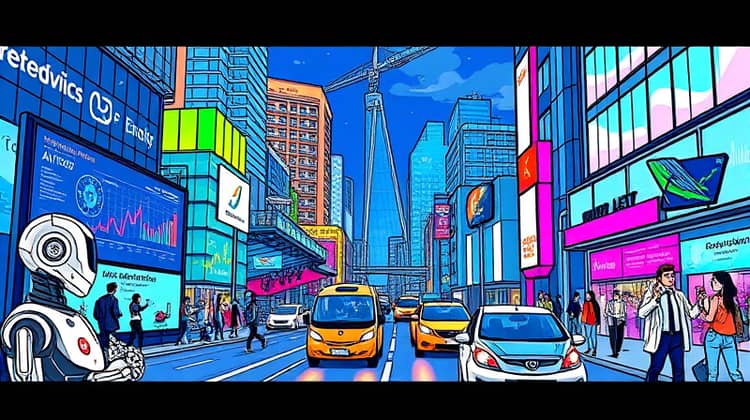
Artificial Intelligence (AI) and Machine Learning (ML) are at the forefront of technological advancements today. AI refers to the simulation of human intelligence processes by machines, while ML focuses specifically on the development of algorithms that enable machines to improve their performance based on experience or data.
These technologies have the potential to affect various sectors, including healthcare, finance, transportation, and entertainment. By analyzing vast amounts of data, AI can make accurate predictions, automate repetitive tasks, and enhance decision-making processes. They fundamentally change how businesses operate and interact with customers.
- Personal assistants like Siri and Alexa use AI to provide personalized services.
- AI algorithms are used in predictive analytics to forecast trends in businesses.
- Machine learning models improve over time as they are exposed to more data, leading to increased accuracy.
As AI continues to advance, ethical considerations surrounding its use are becoming increasingly important. The way data is collected, manipulated, and utilized raises questions about privacy, accountability, and security.
Despite challenges, the integration of AI and ML into daily life is expected to increase, enhancing productivity and creating new opportunities across multiple industries.
2. Internet of Things (IoT)

The Internet of Things (IoT) refers to the interconnection of physical devices, vehicles, buildings, and other items embedded with sensors and software to collect and exchange data. This connectivity enables seamless interactions between the user's environment and the devices.
IoT has transformed everyday processes by allowing automatic data exchange and control without requiring human intervention. This technology is present in smart homes, healthcare systems, and even entire cities, significantly improving efficiency and convenience in daily tasks.
- Smart home devices like thermostats and security cameras that can be controlled remotely.
- Wearables like smart watches that monitor health metrics such as heart rate and sleep patterns.
- Smart cities using IoT sensors to manage traffic flow and reduce energy usage.
The integration of IoT devices into daily life is growing rapidly, with increasingly sophisticated applications enhancing our interactions with technology. IoT provides real-time data that can lead to better decision-making and increased productivity.
However, as IoT becomes more prevalent, concerns regarding security and data privacy are also rising. Ensuring the security of interconnected devices is essential to preventing misuse and breaches of sensitive information.
3. Blockchain Technology
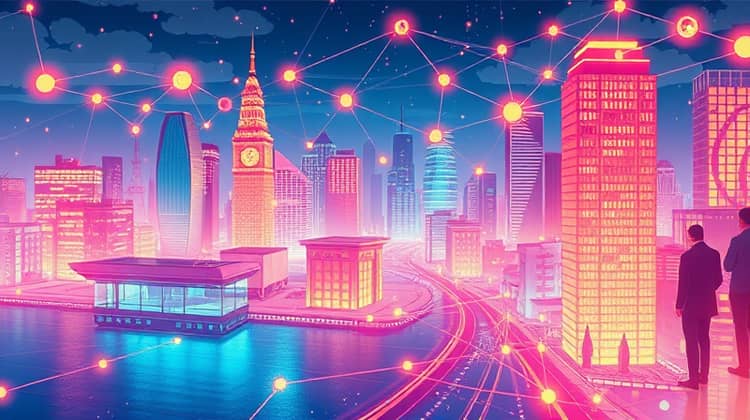
Blockchain technology was initially introduced as the foundation of cryptocurrencies like Bitcoin but has since evolved into a versatile technology with numerous applications. A blockchain is a decentralized ledger that records transactions across many computers, ensuring that any changes to the record can only be made collaboratively and transparently.
The potential of blockchain extends beyond finance to sectors such as supply chain management, healthcare, and voting systems. Its ability to provide secure and transparent transactions makes it a game-changer for many industries.
- Blockchain can enhance transparency in supply chains, allowing consumers to trace product origins.
- Smart contracts automate agreements directly on the blockchain with conditions coded in.
- Decentralized finance (DeFi) platforms leverage blockchain for peer-to-peer transactions eliminating the need for intermediaries.
As more organizations recognize the benefits of blockchain, its adoption continues to rise. The technology fosters trust among users by providing an immutable record of transactions, which is crucial in sectors dealing with sensitive information.
Nevertheless, challenges such as scalability, environmental impact, and regulatory uncertainty persist in its broader adoption.
4. Augmented Reality (AR) and Virtual Reality (VR)
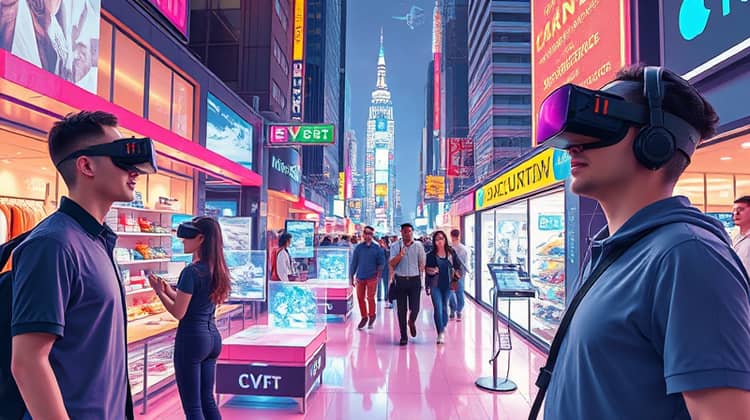
Augmented Reality (AR) and Virtual Reality (VR) are technologies that enhance our perception of reality. AR superimposes digital information onto the real world, while VR immerses users in a fully digital environment. Both technologies are increasingly finding applications in entertainment, education, and various professional fields.
Generations of gamers have experienced the evolution of video games via VR, but the application goes beyond entertainment. For instance, AR is enhancing retail experiences, allowing customers to visualize products in their own spaces before purchasing.
- AR in mobile apps helps users see how furniture looks in their homes before they buy.
- VR simulations are used to train professionals in complex procedures, like surgery or aviation;
- Real estate agents employ VR tours to showcase properties remotely.
The merging of AR and VR technologies with our daily lives promotes engagement in ways never seen before, transforming activities from shopping to learning.
Despite their growing popularity, there are significant hurdles to overcome. Issues such as cost, accessibility, and data privacy continue to shape their development.
5. 5G Technology
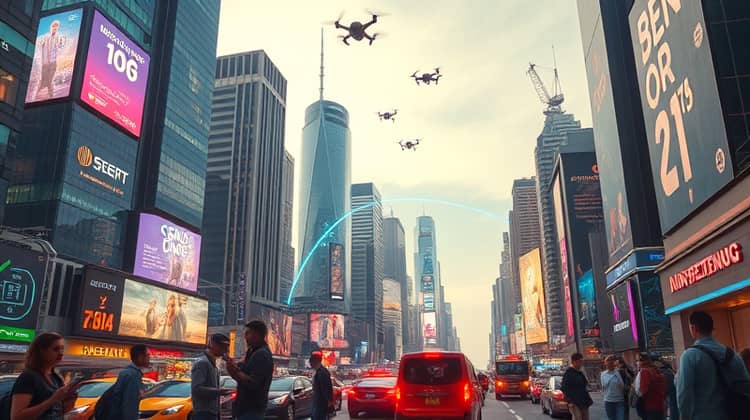
5G technology represents the latest generation of mobile networks, promising faster data speeds, lower latency, and enhanced capacity compared to its predecessors. This breakthrough allows for instantaneous communication and can significantly enhance internet access and connectivity.
The rollout of 5G is pivotal in supporting other emerging technologies, such as IoT and smart city initiatives, effectively keeping our digital lives seamless and efficient. The implications of 5G stretch far and wide, impacting personal, professional, and technological landscapes.
- 5G speeds can be up to 100 times faster than 4G, providing smooth streaming and downloads.
- Lower latency in 5G allows for real-time control in gaming and remote operations.
- Enhanced network capacity supports many devices simultaneously without compromising speed.
The adoption of 5G technology opens new opportunities for innovation, including advanced automation and remote work capabilities. The enhancement of communication networks will enable industries to evolve.
However, the deployment of 5G technology also faces challenges, including infrastructure requirements and concerns about health impacts and security.
6. Biotechnology and Genetic Engineering
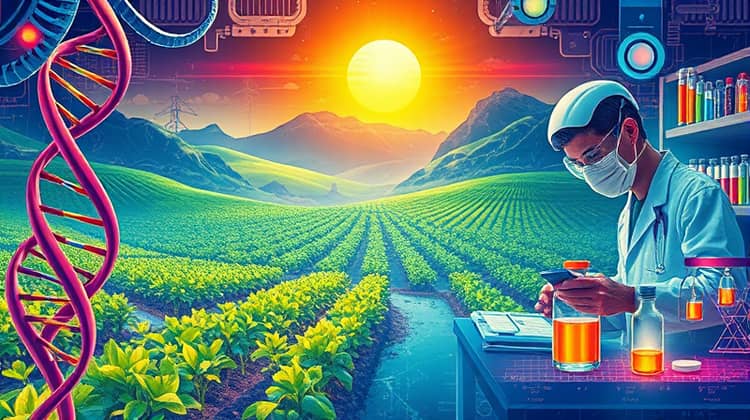
Biotechnology and genetic engineering are at the cutting edge of modern science, offering groundbreaking advancements in medicine, agriculture, and environmental sustainability. These technologies manipulate living organisms and biological systems to create products and solve complex biological issues.
Recent innovations include gene editing techniques like CRISPR, which allow researchers to modify DNA with high precision. This has led to transformative developments in curing genetic diseases and improving crop resilience against pests and diseases.
- Biotechnology applications in healthcare include the development of targeted therapies and personalized medicine.
- Genetic engineering enhances agricultural productivity by creating genetically modified organisms (GMOs) with desired traits.
- Bioremediation uses organisms to clean up contaminated environments, harnessing biotechnology for ecological benefits.
While biotechnology and genetic engineering hold immense potential, ethical concerns regarding genetic modification and its implications for ecosystems and human health persist.
The public's reception of biotechnologies varies significantly, which can influence regulatory approaches and the direction of future research and applications.
7. Renewable Energy Technologies
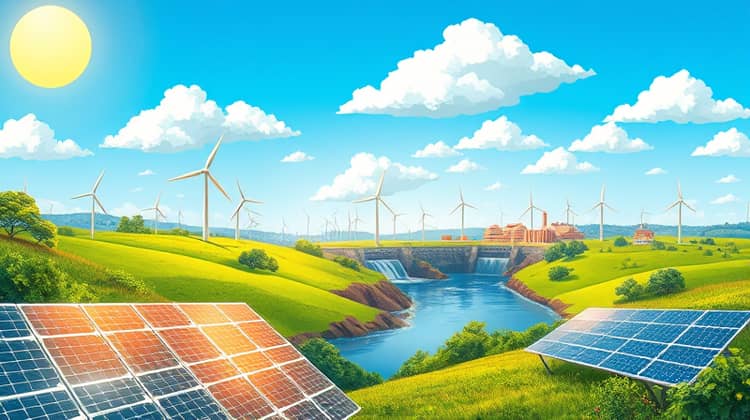
Renewable energy technologies represent a vital shift in how we harness and utilize energy, aiming to reduce dependence on fossil fuels and combat climate change. Innovations in solar, wind, hydroelectric, and geothermal energy are creating sustainable solutions that have far-reaching impacts on global energy consumption.
As renewable energy sources become more accessible and cost-effective, their adoption is reshaping energy infrastructures and contributing to job creation and economic growth.
- Solar panels have significantly advanced in efficiency, making solar energy more viable for homes and businesses.
- Wind energy is becoming one of the fastest-growing energy sources, with onshore and offshore wind farms sprouting worldwide.
- Hydrogen fuel cells are emerging as a clean alternative to traditional energy sources in transportation.
Despite rapid growth, challenges remain in integrating renewable technologies into existing infrastructures and ensuring energy accessibility for all.
However, the future looks promising as government initiatives and private investments play an increasing role in advancing clean energy solutions.
Conclusion
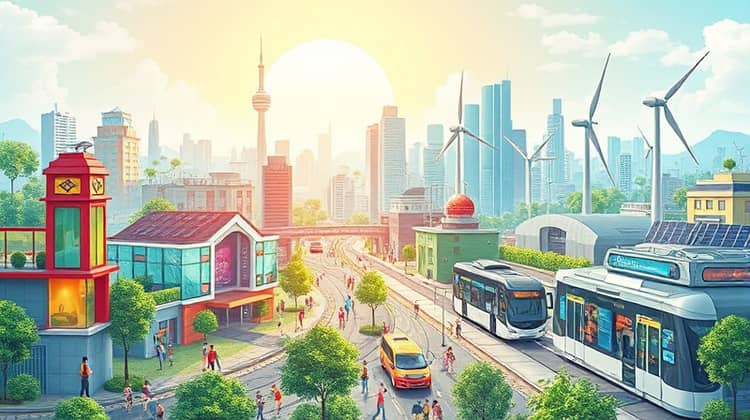
In conclusion, the seven emerging technologies discussed are drastically changing the landscape of everyday life, enhancing connectivity, efficiency, and sustainability. These innovations are paving the way for a future where human interaction with technology continues to deepen, offering untold conveniences.
As these technologies evolve, they prompt thoughtful considerations around ethics, accessibility, and security. The implications of their integration into our lives require a balance between maximizing benefits and addressing associated challenges.
The future will likely bring further advancements that intertwine these technologies, creating an even more interconnected and dynamic world. Embracing these changes will require adaptability and a forward-looking mindset to navigate the evolving technological landscape.

